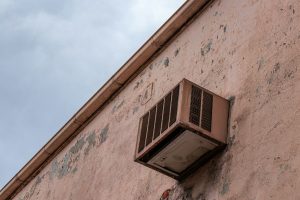Key Takeaways:
- Regular maintenance and prompt repairs are crucial for maximizing your AC’s lifespan.
- Simple steps like cleaning and changing filters can make a significant difference.
- Knowing when to call a professional can save future costs and avoid major breakdowns.
Table of Contents:
- Routine Maintenance
- Filter Care
- Thermostat Management
- Clearing Debris
- Ductwork Considerations
- Professional Checkups
- Improving Energy Efficiency
- Knowing When to Replace
Routine Maintenance
Regular maintenance is the cornerstone of a long-lasting air conditioner. Simple tasks like inspecting and cleaning your system can prevent more costly issues. If you need AC repair Las Vegas, promptly addressing minor issues can help prevent major breakdowns. Experts say a well-maintained AC unit consumes less energy, lowering utility bills and reducing carbon emissions. Regular maintenance checks should include examining the condenser coils, checking the thermostat settings, and ensuring the condensate drain is clear.

Filter Care
Changing or cleaning your AC filters every one to three months can drastically improve performance. Dirty filters inhibit airflow, making your system work harder and wear out faster. Some filters are reusable and must be washed, while others should be replaced entirely. Neglecting this simple task can lead to reduced efficiency, higher energy bills, and potential damage to the system’s components. A clean filter maintains efficient operation and contributes to better indoor air quality, reducing allergens and improving overall health.
Thermostat Management
Using a programmable thermostat can help you automatically adjust the temperature when you’re not home, saving energy and reducing wear on your AC. Setting the thermostat a few degrees higher when you’re away can save significantly each year. Modern thermostats offer innovative capabilities, allowing you to remotely control your home’s climate via smartphone apps. This enhances convenience and ensures your home is at the perfect temperature as soon as you walk through the door.
Clearing Debris
Keep the area around your outdoor unit free from debris, vegetation, and other obstructions to ensure proper airflow. A clutter-free environment allows your unit to operate efficiently and minimizes the risk of damage. Overgrown plants and shrubs can inhibit airflow and reduce the system’s efficiency. Regular inspections to remove leaves, dirt, and other debris can prevent potential damage to the coils and other essential components.
Ductwork Considerations
Ensuring your clean and well-sealed ductwork prevents cool air from escaping before it reaches your living spaces. Routine inspections and professional cleaning services can help reduce energy loss and improve system efficiency. Leaky ducts can lead to significant energy loss, increasing your utility bills. Sealing and insulating ducts in unconditioned spaces, such as attics and crawl spaces, can enhance your system’s overall performance and ensure excellent air distribution throughout your home.
Professional Checkups
Scheduling annual checkups with a professional HVAC technician can help catch potential issues early. During these visits, technicians can inspect critical components, check refrigerant levels, and ensure everything operates smoothly. Timely repairs can prevent minor issues from turning into costly damages. A comprehensive checkup typically includes inspecting the motor, checking for leaks, testing airflow, and verifying the correct refrigerant charge. These proactive measures can significantly extend the life of your unit and maintain optimal performance.
Improving Energy Efficiency
Thanks to technological advances, modern AC units are more energy-efficient than ever. Retrofitting your system with a new energy-efficient unit can reduce your environmental footprint and utility costs. Energy-efficient systems can significantly reduce greenhouse gas emissions, benefiting your wallet and the planet. When considering an upgrade, look for units with a high SEER (Seasonal Energy Efficiency Ratio) rating, which indicates better energy performance.
Knowing When to Replace
No air conditioner lasts forever. Understanding when to replace your old unit can save you from unexpected breakdowns and high repair costs. If your unit is over 10-15 years old or repairs cost more than half the price of a new system, it might be time for a replacement. Another indicator is a noticeable decline in performance, such as uneven cooling or strange noises. Investing in a new unit, especially an energy-efficient one, can offer enhanced comfort, lower energy bills, and peace of mind.
